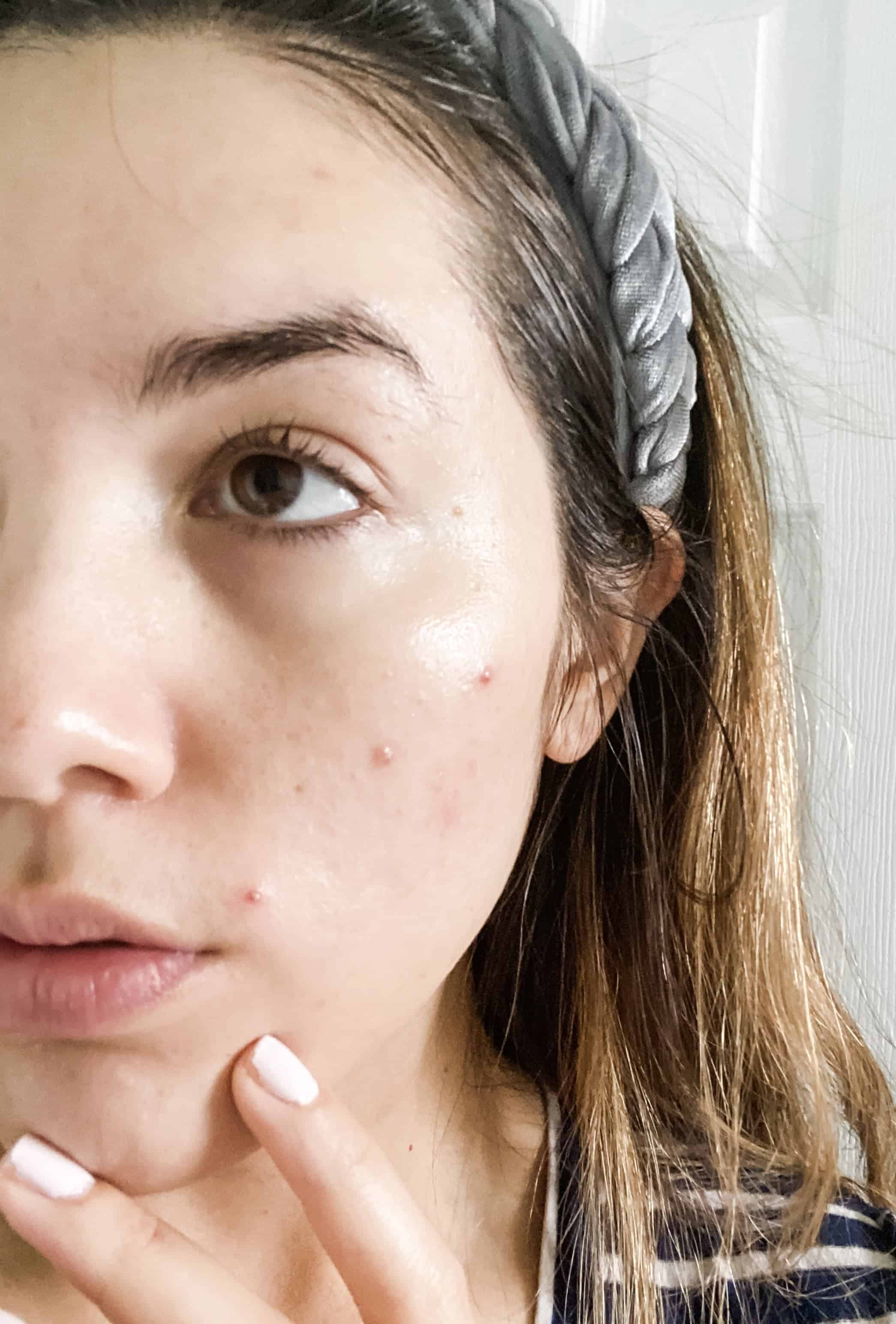Are you currently dealing with whiteheads or blackheads? You may know the two common treatments that are recommended for pimples: benzoyl peroxide & salicylic acid. So, which is better? This guide helps you understand why salicylic acid works best on those skin concerns, and how to use salicylic acid for acne.

Benzoyl Peroxide Vs Salicylic Acid For Acne
Let’s jump into the differences between these two common acne treatments. When we break down how they work on the skin, we will see why we should treat certain types of pimples differently.
Benzoyl Peroxide
Think that applying any old acne treatment will get rid of your zits? You might want to reconsider that. Traditionally, benzoyl peroxide and salicylic acid products have been recommended to get rid of acne but there is a difference.
Benzoyl peroxide actives work by killing acne bacteria on the skin. They also help dry up and turn over excess skin cells, thereby reducing clogged pores.
Benzoyl peroxide is recommended for those with mild to moderate acne. It is more effective on getting rid of pustules and inflamed, red zits. That is due to the power of its acne bacteria killing properties.
It has to be known though, that benzoyl peroxide can be harsh for those with sensitive skin. When I used it, i found it to be very drying and irritating.
Salicylic Acid
Using salicylic acid for acne is recommended when you have whiteheads and blackheads, or more mild acne.
Like benzoyl peroxide, it works by exfoliation to clear up clogged pores but doesn’t have the acne bacteria-killing properties that benzoyl peroxide does. So, if you are dealing with cystic/inflamed pimples that keep coming back, salicylic acid treatments might not be the best choice.
This is also something to note if you are using over-the-counter products: there is a maximum allowed amount of salicylic acid (2%) that can be added to the counter items. The strength might not be enough to make a difference on problematic skin.
But, if you have mild acne, whiteheads, or blackheads you should reach for this active for help! This is great for smoothing textured skin as well. Let’s talk about the benefits.
Benefits Of Salicylic Acid For Acne
When used on whiteheads and blackheads, salicylic acid works to gently exfoliate the skin. Like mentioned above, it reduces clogged pores. This is due to the fact that it dissolves the oil on the face. Another benefit of using salicylic acid for acne is that it us much gentler!
Salicylic acid is an anti-inflammatory option as it is derived from the willow bark, the same as aspirin. This makes it perfect for soothing painful bumps.
How To Use Salicylic Acid For Acne
There are many different options and ways to incorporate salicylic acid into your skincare routine.
Face washes, masks, spot treatments, serums, facial pads, and toners are just some ideas of what is available. Here are some great products featuring salicylic acid:
As a general rule, don’t use it more than three times a week. That is so you don’t dry out the face or irritate it. Start out using it in moderation until your skin can become accustomed to it. Also, be sure to moisturize when adding this to your routine. You could even buffer it with a moisturize when starting out.
If you are pregnant or nursing, read this.
Where To Buy Salicylic Acid For Acne
I typically buy my skincare related items at Ulta as they have a wide selection and have more accessible stores in my area. But lately, Target has stepped up its skincare and beauty game. Walmart and drugstores like CVS/Walgreens have some products with this active in them too. Here are some staple products to snag the next time you go to on a Target run:
I hope this helps sort out any confusion on how to treat your specific kind of acne! Salicylic acid is a great staple to have in your skincare regimen to keep skin clear.
If you are an acne sufferer, be sure to check out these other helpful posts:
or my Get Rid of Acne archives.
Have a blessed day, Mia
This content is for informational purposes only, and what has worked for me personally based on my own opinions. I am not a professional/medical doctor, and you should always consult your doctor or dermatologist on what will work best for you. The information presented here is not legitimate, official advice from a professional. If you choose to rely on any information from this blog, you do so at your own risk. Please refer to the “Blog Disclaimer” tab in the menu bar to read more information and the official disclaimer statement.


